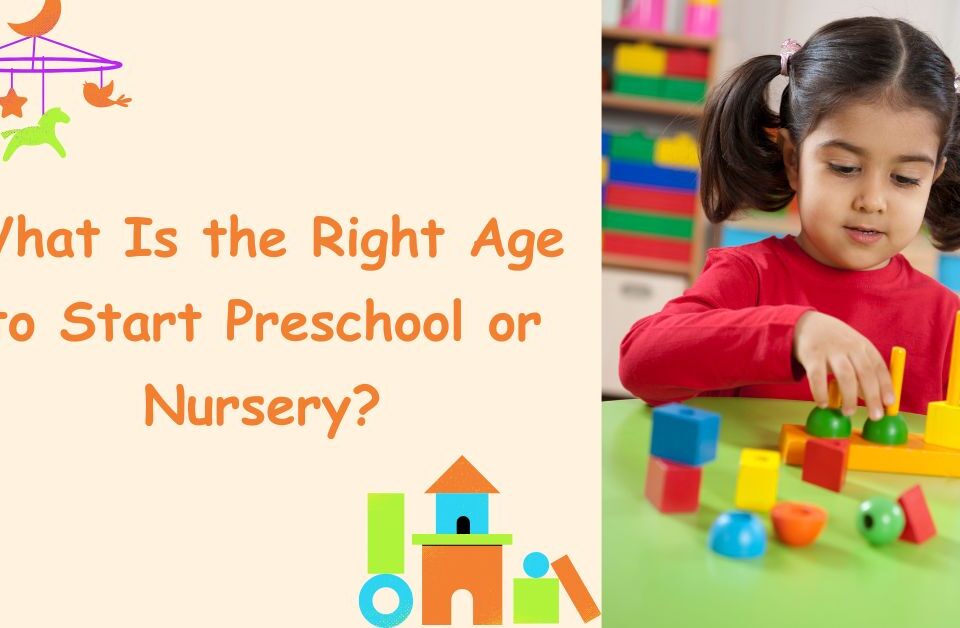
What Is The Right Age For Play School Admission?
October 28, 2024
List of Vegetable Names for Kids in English & Hindi with Pictures
October 30, 2024Top Challenges Preschoolers Face in School and Effective Ways to Overcome Them
As parents, it’s extremely natural to worry about your child’s safety and well-being as they move on from the threshold of being under your care to being within the four walls of a preschool.
This is because you keep hearing so many accounts of challenges faced by preschoolers. As a result, you wouldn’t want your child to go through the same ordeal.
This is why we have put together this blog to describe the most common challenges faced by preschoolers and the best strategies to counteract them.
Common Challenges Faced by Preschoolers in School and How to Support Young Learners
Social Challenges Preschoolers Face
1: Difficulty Interacting with Peers
One of the primary preschool social challenges faced by kids is observed in their interaction with other kids.
When kids are adjusting to preschool life, they must develop basic communication skills so that they can interact with others and form friendship bonds.
However, this may be difficult and overwhelming for some of them. They may struggle to start conversations, make friends, or adapt to new social dynamics.
Also Read: Developing Social Skills In Preschool Kids: Tips & Activities
2: Adjusting to Group Activities
Group activities can be a significant hurdle for many preschoolers to overcome. The concepts of sharing, following group rules, working as a team, and communication skills in preschoolers are often new, and many of them may find it difficult to adjust.
This is why it’s important to teach preschoolers basic communication skills and encourage them to socialise from early childhood.
3: Challenges in Self-Expression
Effective communication is one of the most common challenges faced by preschoolers. They may struggle to express themselves clearly which may further lead to frustration or misunderstandings.
Hence, preschoolers must be taught to voice out their needs and express their feelings. This is essential for adjusting to preschool life.
4: Struggles with Sharing
If your child has grown up without much social interaction, they may find it difficult to understand the concept of sharing toys or attention with others.
This leads to conflicts and preschool social challenges. This is why it’s important to help your child overcome social challenges and interact with other kids before enrolling them in a preschool.
Also Read: Importance Of Discipline In Students Life: Key to Academic Success & Personal Growth
Learning Challenges Faced by Preschoolers
1: Independent Eating Skills
Independent eating can be one of the most serious learning difficulties in preschool. Many children may struggle to manage mealtime tasks such as using utensils, eating on their own, or finishing their food.
This challenge is a key aspect of adjusting to preschool life and it requires immense patience and gradual skill development.
2: Language and Communication Challenges
Language development is also an extremely common hurdle among the many challenges faced by preschoolers. Some children may struggle with learning new words, forming sentences, or understanding instructions.
These language-related learning difficulties in preschool can affect social interactions and the overall adjustment to a new environment.
Also Read: Top 8 Educational Activities For Preschool Kids to Enjoy At Home
3: Difficulty Focusing and Concentrating
Young kids often struggle with focus and concentration which makes it another significant challenge for preschoolers. Short attention spans and distractions are common with kids.
However, this can hinder learning and make it difficult for them to complete tasks. This is why it’s necessary to overcome these learning difficulties in preschool as soon as possible. Instead, the importance of discipline and learning must be emphasised.
4: Physical Development Hurdles
Physical development is also one of the most common challenges faced by preschoolers. Kids can find difficulty with tasks like holding a pencil, using scissors, or engaging in physical play.
There can be many reasons for this the most common being limited motor skills. These learning difficulties in preschool can affect their growth and holistic development.
Also Read: Reasons Why Socialization is Important in Student Development
Emotional Challenges of Preschoolers
1: Managing Separation Anxiety in Preschoolers
Separation anxiety is one of the most common emotional challenges for preschoolers when they’re trying to adjust to a new environment.
When kids are habituated to being close to their parents 24/7, suddenly being away from them can cause significant separation anxiety in young children, distress, and fear. This can further lead to clinginess or crying.
2: Fear of New Environments
Fear of new environments is also one of the most natural emotional challenges for preschoolers. When they are enrolled in a play school, they encounter many unfamiliar places and people.
The anxiety associated with adjusting to preschool life and new surroundings can cause hesitation or withdrawal. This further makes it difficult for children to engage in activities and socialise.
Also Read: Creating A Positive Learning Environment At Home For Your Child
Behavioral Challenges in Preschool
1: Disobedience in School
Disobedience is one of the most common behaviour issues in preschool that are exhibited by kids. The root cause lies in a child’s struggle to understand rules or express themselves.
Moreover, emotional challenges can intensify their disobedience and lead to resistance even during strict instructions.
2: Managing Tantrums
Tantrums are frequent behaviour issues in preschool that are usually triggered by frustration, tiredness, or unmet needs.
Such children are characterised by sudden emotional outbursts. This is quite harmful for the kids. Moreover, it can be difficult to manage such kids.
Also Read: Tips To Improve Public Speaking Skills For Students
Effective Strategies to Support Preschool Challenges
1: Encouraging Gradual Independence
Some of the best support strategies for preschool challenges include gradually encouraging your child to practice independence.
You can do this by letting them participate in simple tasks like dressing or eating on their own. This helps them adjust to preschool life while building essential skills at a comfortable pace.
2: Promoting Positive Social Interactions
It is essential to promote social interaction by organising playdates or group activities to improve communication skills in preschoolers from early childhood.
This can be encouraged by organising small group plays to help children practice sharing, teamwork, and making friends. It makes the transition to preschool life more easy and enjoyable.
Also Read: Activities for Nursery Class Students: Fun and Educational Ideas for Kids
3: Building a Consistent Routine
You can also try building a consistent daily routine to ease some of the challenges faced by preschoolers.
This can prove to be quite effective because familiarity with scheduled activities helps children feel secure and adjust to preschool life. It also enhances focus and reduces anxiety in young children.
4: Encouraging Open Expression
One of the most important and necessary support strategies for preschool challenges is to encourage children to express their feelings and thoughts freely. This significantly improves communication skills in preschoolers.
It also helps them to articulate emotions in a healthy way. Thus, they end up managing their frustrations and minimising behavioural issues such as tantrums or disobedience.
5: Offering Positive Reinforcement
It is extremely effective to use positive reinforcement as a support strategy for preschool challenges.
You can help your kids gain confidence and encourage positive behaviour by praising their efforts and achievements, no matter how small. It encourages them to keep trying and helps them adjust to preschool life and develop new skills.
Also Read: Why Is Storytelling Important In Early Childhood Education?
Ensuring a Positive Start to Preschool: Final Thoughts
The challenges faced by preschoolers are a natural part of their early development. They can face several hurdles ranging from difficulty with social interactions and learning to emotional and behavioural issues.
However, the important thing is to address these challenges as soon as possible to ensure a positive preschool experience for your child. If you offer the right support, your child will be able to grow and thrive in a new environment.
JBM Smart Start is one of the best preschools near you because every staff member here is committed to providing a positive experience for your child. Every child here is treated with utmost care and attention so that all of their needs are met. Moreover, the supportive environment at this school also promotes an enjoyable learning experience and holistic development.
Also Read: Importance Of Books In Students’ Life
Frequently Asked Questions about Preschool Challenges
Question 1: What are some of the challenges associated with the preschool years?
Answer: Some of the challenges associated with the preschool years include social interactions, learning difficulties, emotional struggles like separation anxiety, and behavioural issues such as disobedience and tantrums. These challenges are part of the children’s adjustment to a new environment and routine.
Question 2: What are the common conflicts in preschool?
Answer: The common conflicts in preschool often arise from sharing, communication issues, and differing emotions. Children may struggle with sharing toys, following group rules, or expressing their feelings. This can lead to misunderstandings and conflicts with fellow kids.
Question 3: What are the most common challenges preschoolers face in school?
Answer: The most common challenges preschoolers face in school are interacting with peers, learning difficulties such as language development, and emotional hurdles including separation anxiety. These challenges can impact their adjustment to preschool life and overall development.
Question 4: How can parents help preschoolers with social difficulties?
Answer: Parents can help preschoolers with social difficulties by organising playdates and group activities that encourage communication and interaction. It is essential to teach them basic social skills and promote open dialogue about feelings to help in overcoming these challenges.
Question 5: What signs indicate that a preschooler is struggling emotionally?
Answer: Signs of emotional struggles in preschoolers may include increased clinginess, frequent tantrums, withdrawal from social activities, or difficulty expressing emotions. These behaviours often indicate challenges like separation anxiety or fear of new environments.
Question 6: How can educators address learning difficulties in preschoolers?
Answer: Educators can address learning difficulties in preschoolers by creating a structured routine, offering individualised support, and encouraging language development through interactive activities. Moreover, they must provide regular assessments and practise open communication with parents for additional support.
Question 7: What strategies can be used to manage behaviour issues in preschool?
Answer: Some of the strategies that can be used to manage behaviour issues in preschool include establishing clear rules, using positive reinforcement, and encouraging open expression of feelings. Moreover, establishing consistent routines and modelling appropriate behaviour can help children learn self-regulation.




